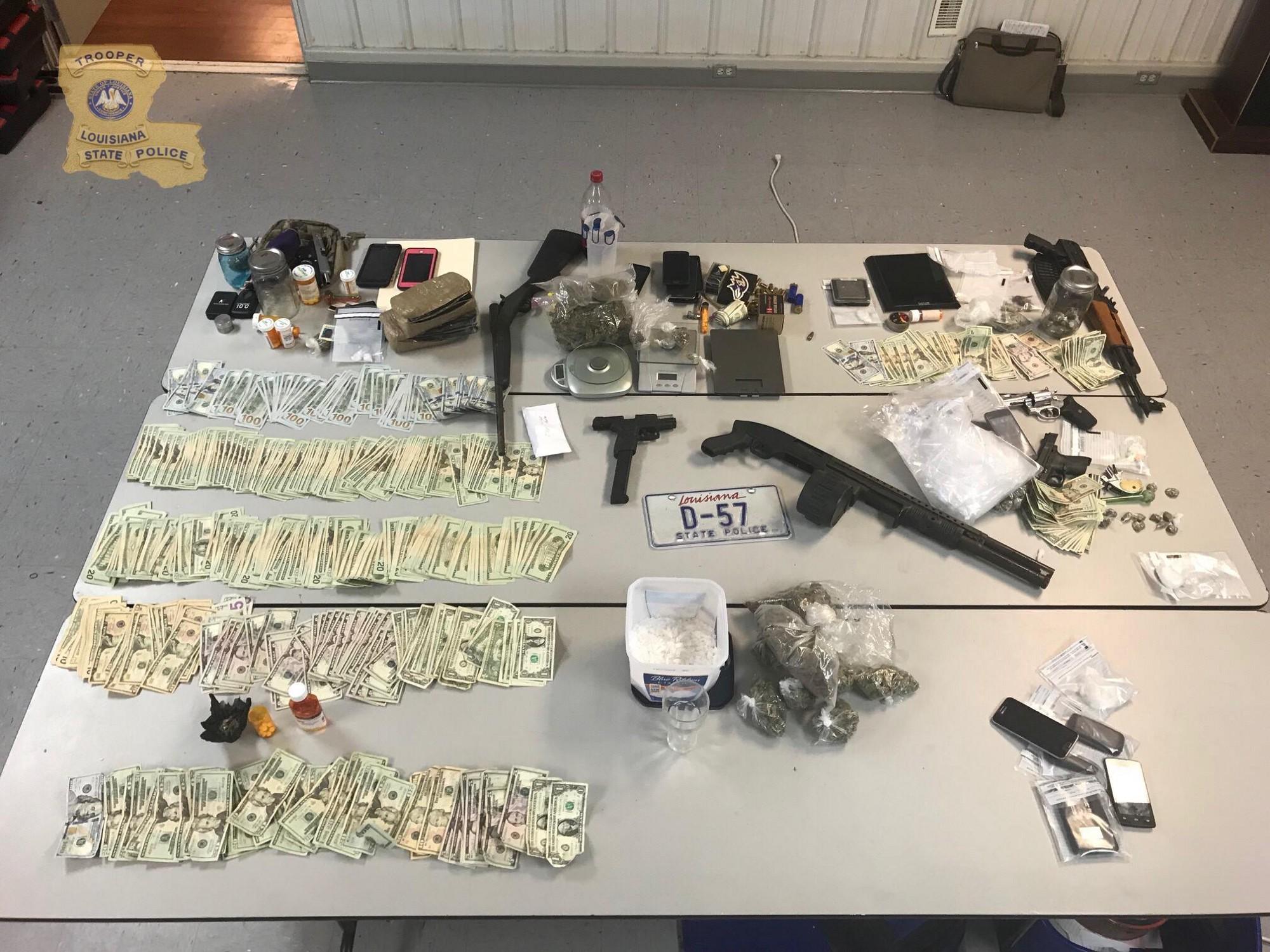How Naming a Drug Operation for a Fallen Trooper Endangers His Alleged Killer’s Fair Trial
When Kevin Daigle was set to be tried in late April on first-degree murder charges for allegedly killing a Louisiana state trooper in August 2015, he faced the steepest of odds: Prosecutors in the case decided to seek the death penalty, and juries are prone to deliver death verdicts when the life of a law enforcement officer is taken. But […]

When Kevin Daigle was set to be tried in late April on first-degree murder charges for allegedly killing a Louisiana state trooper in August 2015, he faced the steepest of odds: Prosecutors in the case decided to seek the death penalty, and juries are prone to deliver death verdicts when the life of a law enforcement officer is taken.
But Daigle’s dilemma deepened in mid-April when the Louisiana State Police (LSP) arrested more than 180 people on drugs and weapons charges and named the operation “D-57” after the unit number of the slain trooper, Steven Vincent. Incredibly, the LSP said in a statement that “Trooper Vincent’s son requested we [would] ‘find a lot of drugs’ if we used his father’s LSP unit number as the operation title, and that’s exactly what resulted.” In photographs released to the media, the LSP displayed the drugs and weapons the agency allegedly seized in the operation, accompanied by a Louisiana license plate that read “D-57.”
The LSP’s arrests were not confined to the Southwest Louisiana parish — Calcasieu — where Vincent was murdered. Instead, the nearly 200 people taken into custody on drugs and weapons charges were from across Louisiana, meaning that news of the operation conducted in the murdered trooper’s name reached nearly every corner of the state.
Why does an anti-drug operation and its attendant publicity matter for Daigle? Because his defense team had already argued that the extraordinary attention surrounding the case — which included near-constant local media coverage and even articles in national publications like USA Today and theNew York Times — would prejudice the Calcasieu Parish jury pool. In 2016, Louisiana 14th Judicial Court judge Guy Bradberry agreed and decided that the jury should be selected from Bossier Parish, about 200 miles away, and then brought to Calcasieu to hear the guilt phase of the trial. Naming the statewide effort “Operation D-57,” then, compounded the problem of a fair and impartial jury for Daigle, who faces execution at the hands of the state of Louisiana.
Courts have recognized the outsized influence that the police can exert on a defendant’s right to a fair trial. Such troubling situations often arise when police make public pretrial statements about the case, pack a courtroom with officers in uniform during trial, or, as here, engage in a massive drug operation that reignites a community’s outrage over a police shooting. Such conduct can violate a defendant’s 14th Amendment due process right to a fair trial. It compromises the person’s right, in other words, to a jury that impartially decides his or her fate based only on the evidence, and not on emotions or preconceived impressions.
Unsurprisingly, on April 27, Daigle’s defense team filed yet another motion to seek a change of venue precisely because of “Operation D-57.” Soon afterward, the Louisiana Supreme Court stayed the trial indefinitely, but did so based on a separate defense motion. The defense sought to recuse Judge Bradberry because of numerous alleged conflicts of interest in the case, including the fact that he and Trooper Vincent’s wife are Facebook friends and that Bradberry or his wife may have “liked” a Facebook post offering prayers for the Vincent family.
Louisiana’s Third Circuit Court of Appeal ultimately ruled that Bradberry will remain on the case and for now it’s unclear when — or where — Daigle’s trial will take place. But the extraordinary publicity surrounding a massive drugs and weapons operation conducted by the state police, all in the name of their fallen trooper, suggests that Daigle’s uphill battle for a fair capital trial might have taken a precipitous and perhaps fatal turn.
